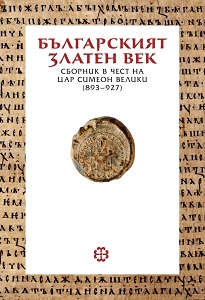
We kindly inform you that, as long as the subject affiliation of our 300.000+ articles is in progress, you might get unsufficient or no results on your third level or second level search. In this case, please broaden your search criteria.



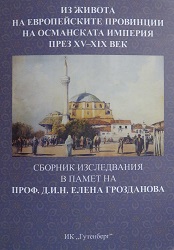
Throughout the 15th-18th centuries the Jews, the Christians and the Muslims of the Ottoman Empire paid significant attention to the orphans' and poor children's relief. However, none of the Sultan's subjects set up an orphanage. The children in need were raised as fosterlings. Many extramartial infants were abandoned. If the abandoned children survived until 4 years of age, they entered the gangs. From 1839 onward the Ottoman officials considered the socialization of the orphans, pauper children and delinquents as an essential state affair. As early as 1860s they endeavored to set up industrial or reform schools. The paper of the author focuses on the very idea to establish such schools and casta light on their network in the Ottoman Empire. It summarizes the hypotheses for their origin; the available information about some West European models of social assistance for the children in need; the Ottoman initiative to train orphans, pauper children and delinquents; the role of Midhat Pasha; the origin of the term "islahhane"; the mutual rhetoric and rules of the Belgian and Ottoman reform schools. It advances the suggestion that the islahhanes or the industrial schools embodied the Ottoman attempt effecitvely to manage the periodically increasing number of the children in need. Perhaps the initiative combined the "domestic" model of the Catholic boarding schools, this one of the reform schools run by the Belgian government and the religious imperative for the orphans' and pauper children's socialization. While serving as a provincial governor, in 1863-1866 Midhat Pasha sought to carry out the actual state attempt. From 1867-1868 onward the project was developed by other provincial governors, as well.
More...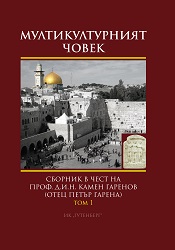
Eastern Roumelia received its fundamental law drafted by a specially European commission. It is quite a detailed document providing for all aspects of life of the Roumeli citizens. The Organic Statute of Eastern Roumelia defined the new political formation in the Balkans as a state of modern (for that time) bourgeois-liberal type. It had all the features of and independant state: its own government, a representative authority elected by the people and a national army. The sovereignty of the sultan was included in the Statute, but thanks to the efforts of Eastern Roumeli political figures, it soon became nominal, without any serious power in the region. Unlike the neighboring countries (the Ottoman Empire, the Principality of Bulgaria, Serbia, Greece and Romania) there was no legalized and preferred religion in Eastern Roumelia. All religious issues were placed in the hands of the religious communities and the state did not involve itself with them. The only condition was that they should not violate any of the laws valid to the region.
More...
Stefan S. Dobchev was a noted Bulgarian public figure, scholar and statesman. Even in his early years he established contacts with the Russian Slavic societies. At the end of the 19-th century and the beginning of the 20-th century, when the blocks in the future world war were formed, he became an active participant in the movement for unity of Slav peoples. The idea was that they should not be placed in a confronting position in the world military conflict that that was forming. Stefan Bobchev was one of the active organizers of the Slavic associations of the intelligentsia and other such estates. Stefan Bobchev stood out as an active organizer and political figure in the field of the struggle for Slavic unity. Until the end of his life, he remained a firm believer in the unity of Slav peoples.
More...
The life and work of the Turkish journalist and publicist M. N. Deliorman, packed as they are with plenty of valuable information about the history of the Turkish community and the political history of Bulgaria, deserve to be reached. After presenting the most important points in the biography of M. N. Deliorman, this paper discusses in great detail his reports from Bulgaria, which he sent as a correspondent in the course of nearly two months directly after the coup on September 9, 1944.
More...
The Macedonian charity, cultural and educational fraternities in Bulgaria were established by the refugees from Macedonia who came to this country after Kresna-Razlog Uprising in 1878, the Illinden (St. Elijah's Day) Uprising in 1903, the Second Balkan War in 1913 and World War I. They originated on a purely fraternity basis with the aim of charity work, mutual support and preservation of family roots. The number of fraternities established by the refugees grew with their number in Bulgaria, running parallel to and enrichment of the forms of organization: clubs emerged, ephorie (boards of trustees), cooperatives, cultural and educational scocieties, orphanages, including banks such as the Macedonian Cooperative Bank and the Macedonian Popular Bank, and the Macedonian Research Institute among others. At the beginning of May 1934 there were about 540 Macedonian refugee structures established all acros Bulgaria with 50634 regularly reported members. The activity of the Macedonian fraternities was officially terminated with Decree № 130 of 1951 of the Presidium of the National Assembly. A special circular letter of the Ministry of Justice was issued whereby the company cases of the refugee organization were transferred to the regional and district courts where single-member panels presided. The decree of the Presidium transferred the entire property of the Macedonian charity fraternities and other Macedonian organisations to the newly-established Gotse Delchev Society in Sofia.
More...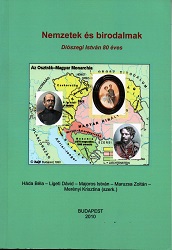

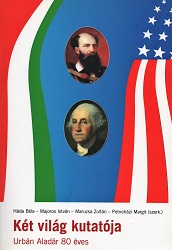
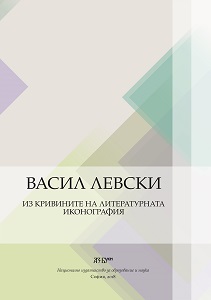
The text attempts to reconstruct the beginning of the Bulgarian heroic epic. The author believes that the structure of the author‘s epic was invented by Hristo Botev and was later extended by Ivan Vazov. Vasil Levski‘s figure is met in both poets, but while Vazov writes the live of the Deacon like a saint, Botev carries out his literary canonization according to all ritual procedures and turns it into the Bulgarian Jesus.
More...
The year 1898 marked the first jubilee of Vasil Levski – 25 years since his hanging. The dynamics of political processes in liberated Bulgaria at the time present a rather interesting and particularly complex picture against the background of which this event unfolded. The stereotype of jubilee celebrations was yet to consolidate and this particular occasion – the anniversary since the death of the Apostle of freedom – makes visible the deep political contradictions inherited from previous historical realities. The manifestations of these contradictions can be seen in the press in 1898.
More...
e need to segregate the true historic personality of Vasil Levski in his undisputed role and pivotal mission of Bulgarian national hero, from the mythical images created by the idiosyncratic viewpoints in different sociopolitical layers of time. The text duly justifies the need to rediscover the real personality of the Bulgarian Apostle of Freedom. The academic study follows the ideological transition of Vasil Levski from conservative nationalism, towards the liberating revolutionary nationalism of the Bulgarian Revival period. The study takes into consideration the indirect ideological impact of Giuseppe Mazzini over Vasil Levski, and follows up the unique application of the Mazzinist concepts of revolutionary nationalism in the specific Bulgarian conditions.
More...
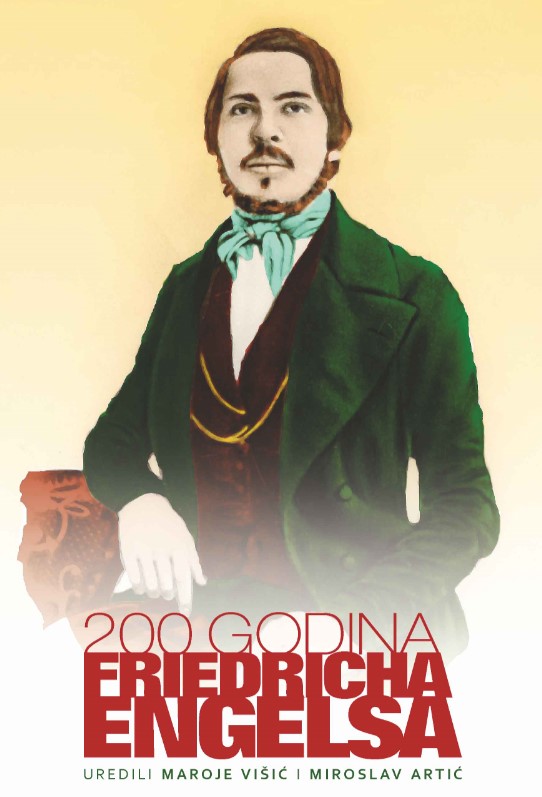
The paper aims to examine how Friedrich Engels was assessed in encyclopedias, professional lexicons and philosophy textbooks at the time when Croatia was a constitutive part of the former Yugoslavia. The methodological basis for the perception of Engels in Croatia is positioned within the framework of a predetermined concept according to which socialist culture was to be built in Yugoslavia, in all its parts, in the spirit of the ‘socialist worldview’ asserting ‘socialist values’. (Viskovic 2001). The aim of this paper is to evaluate this specific political and cultural period, marked by systematic attempts to create a comprehensive encyclopedic knowledge that would shape and finally define the dominant cultural and political sign empowered by Engels’ work. At the same time, its symbolic power had the task of illuminating the direction for the construction of complex Yugoslav socialist culture. This is only a sketch, but also an incentive for a more complex research of this unique conceptual project on the construction of socialist culture.
More...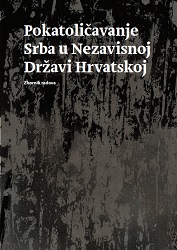
Jedna od najznačajnijih karakteristika Nezavisne Države Hrvatske (NDH) jeste neprijateljstvo njenog režima prema srpskom narodu i Srpskoj pravoslavnoj crkvi (SPC). Nijedna fašistička država koja je egzistirala tokom Drugog svjetskog rata nije sprovela tako široko zamišljeno i organizovano čišćenje državne teritorije od pripadnika neke tradicionalne hrišćanske zajednice kako je to učinila ustaška država kada je riječ o ekspulziji srpske pravoslavne zajednice. Riješenje srpskog pitanja u NDH pored direktne fizičke eliminacije podrazumijevalo je organizovano protjerivanje te ubrzanu i nasilnu nacionalnu asimilaciju. [...]
More...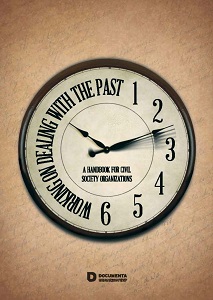
When talking to people from different sides of social divides, I have witnesses the fact that piety to ‘their’ victims is needed in order to establish normal relations with the living. As a child, I heard a neighbour, who lost her husband, saying that she expected the public not only to talk about fascist camps, such as Gonars to which my grandfather was taken from occupied Ljubljana in 1942, but also of prisons such as the one in which she herself was imprisoned after WWII in 1945. She wished that her suffering, from the hands of repressive institutions of that time, to be also remembered. Today we remember that some soldiers, who themselves were victims of Nazi crimes and prosecuted as partisans and communists, after the war became themselves violent prosecutors and torturers. Although emphasizing piety to all innocent victims is slowly becoming a widely accepted standard of political correctness, few countries have approached the ideal of overcoming divisions into ‘our’ and ‘their’ victims, in which conditions have been met to investigate circumstances of death and memory of all who had suffered.
More...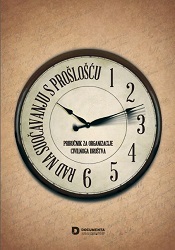
U razgovorima s ljudima s različitih strana društvenih podjela uvjerila sam se kako je za normalizaciju odnosa prema živim a neophodan pijetet prema ‘njihovim ’ žrtvama. Još u djetinjstvu čula sam od susjede koja je izgubila muža kako očekuje da se u javnosti ne govori samo o fašističkim logorima, poput Gonarsa u koji je iz okupirane Ljubljane 1942. odveden moj djed, nego i o zatvoru u kome je poslije Drugog svjetskog rata 1945. bila zatvorena i sama. Željela je da i njena patnja u rukama tadašnjih represivnih institucija ostane zapamćena. Danas pamtimo da su neki ratnici, koji su i sami bili žrtve nacističkih zločina i proganjani kao partizani i komunisti, poslije rata i sam i postali nasilni isljednici i mučitelji. Mada isticanje pijeteta prema svim nevinim žrtvama polako postaje prihvaćeni standard političke korektnosti malo se zemalja približilo idealu nadilaženjem podjela na ‘naše ’ i ‘vaše ’ žrtve u kojima su sazreli uvjeti za istraživanje okolnosti smrti i pamćenje svih stradalih.
More...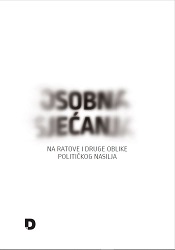
Studija slučaja „Španovica/Novo Selo/Španovica“ bavi se istraživanjem memorije o ratnim stradanjima i životu u ratu i miru u selu dvojnog imena: Španovica/Novo Selo, smještenom u blizini gradića Pakraca, tradicionalnog administrativnog i kulturnog središta zapadne Slavonije. Razdoblje koje studija obuhvaća relativno je dugo i traje od nastanka sela, 1886. unutar Austro-Ugarske Monarhije do danas. U tom razdoblju selo je prošlo kroz nekoliko masivnih povijesnih promjena: raspad Austro-Ugarske Monarhije, nastanak i nestanak tzv. prve Jugoslavije (Kraljevine Jugoslavije), kroz Drugi svjetski rat, novu socijalističku Jugoslaviju (SFRJ) i na kraju, rat u kojem se raspala i ta država. Selo je od 1991. godine u državnom kontinuitetu Republike Hrvatske.
More...